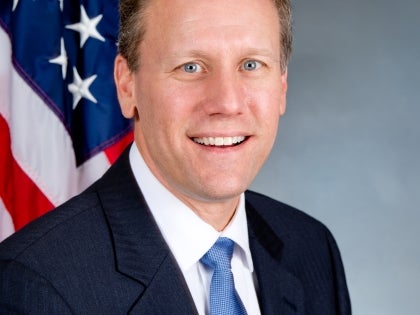
Leandra’s Law passes Senate; strengthens punishment for DWI with child passenger
David J. Valesky
November 18, 2009
-
ISSUE:
- Drunk Driving
ALBANY, N.Y.—State Senator David J. Valesky (D-Oneida) lauded the State Senate passage of landmark legislation drastically increasing the penalty for any person who drives intoxicated with a child passenger.
“Driving while intoxicated with a child in the vehicle is unconscionable. I am pleased that this important legislation provides tougher penalties which will hopefully prevent more tragedies from happening,” Senator Valesky, Vice President Pro Tempore of the Senate, said.
Two recent fatal incidents involving intoxicated drivers with child passengers have highlighted the need for stronger measures to prevent or punish persons who drive intoxicated with children as passengers. The legislation is named for one of those victims, Leandra Rosado, who died at age 11 in a car accident where the other driver involved was intoxicated.The legislation provides for the harshest penalties and most significant expansion of preventative measures to date for any offender convicted of driving while intoxicated with a child passenger. Now, all DWI with child passenger violations are classified as felonies.
Specific provisions of the legislation include:
For any DWI with a child passenger
· Increases offense from misdemeanor to E felony
· Increases maximum penalties from 1 year in jail to 4 years in state prison
DWI and causing serious injury to a child passenger
· Increases offense from E felony to D felony
· Increases maximum penalties from 4 years to 7 years in state prison
Driving recklessly while intoxicated and causing serious injury to a child passenger
· Increases offense from E felony to C felony
· Increases maximum penalties from 4 years to 15 years in state prison
Driving recklessly while intoxicated and causing the death of a child passenger
· Increases offense from D felony to B felony
· Increases maximum penalties from 7 years to 25 years in state prison
The legislation also mandates ignition interlock devices for all DWI convictions. All offenders will be required to install a ignition interlock device in their vehicle upon conviction of any DWI offense, which may only be waived upon a judicial finding that the offender has no history of alcohol abuse or dependence.
Share this Article or Press Release
Newsroom
Go to NewsroomSen. Valesky Meets with SEIU 1199
March 16, 2018

Sen. Valesky Congratulates OCC Student Matt Honeywell
March 16, 2018

Statement from Sen. David Valesky on Gov. Cuomo's Budget Address
January 16, 2018